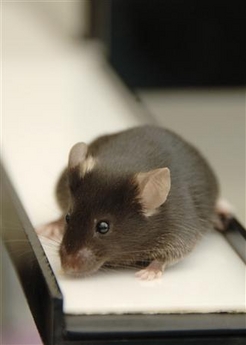Turning off gene makes mice smarter
(Reuters)Updated: 2007-05-28 11:33
CHICAGO - Turning off a gene that has been associated with Alzheimer's disease made mice smarter in the lab, researchers said on Sunday in a finding that lends new insight on learning and may lead to new drugs for memory problems.
"It's pretty rare when you can make an animal smarter," said Dr. James Bibb, assistant professor of psychiatry at the University of Texas Southwestern Medical Center, who led the study published in the journal Nature Neuroscience.
Bibb and colleagues used genetic engineering techniques to breed mice that could be manipulated to switch off Cdk5, a gene that controls production of a brain enzyme linked to diseases marked by the death of neurons in the brain, such as Alzheimer's.
"Any time we're losing neurons, Cdk5 may be contributing to that process. That has made it an area of great interest," Bibb said in a telephone interview.
"We have shown that we can turn off a gene in an adult animal. That has never been done before," he added. When they had tried to breed mice that completely lacked the gene, the pups died at birth.
Bibb said they put the mice though a series of tests and found the altered mice did better than normal mice.
"Everything is more meaningful to these mice," he said. "The increase in sensitivity to their surroundings seems to have made them smarter."
Bibb said the mice were better at tasks based on associated learning, Bibb said.
"It's the most important kind of learning in the animal kingdom. It's how we know where our car is and that is our wife or our husband and that's our kids. It's how we connect things," he added.
The smart mice were better at learning to navigate a water maze and remembering that they got a shock when they were in a certain cage.
"It was very clear right off the bat that the loss of Cdk5 made them have a much stronger associative memory," Bibb said.
"What was really interesting is they not only remembered better, but the next day, if you put them back in those same circumstances, they noticed they were not getting shocked."
Bibb said his work was inspired by the 1999 discovery of "Doogie" mice, a smarter breed of mice developed at Princeton University that were named after the TV program "Doogie Houser," a show that featured a child prodigy.
Those mice were bred by manipulating NR2B, a gene that also plays a role in associative memory.
"It turns out Cdk5 was controlling the regulation of NR2B," Bibb said.
"Maybe by finding these new mechanisms we can find new drugs that improve the cognitive performance of people who have deficits."
He and colleagues are working on developing drugs that could create the same effect without the need for genetic alteration.
"There are other cases - in post-traumatic stress disorder, addiction and depression - where we may want to modulate memory not so much to improve it, but to selectively modify it to remove the negative memories that are causing the problems. I think that has a lot of potential," Bibb said.
However, he said the long-term effects are not yet clear.
"If all of your (brain) synapses were magically strengthened all the time, that might be good for the short term, but I'm not sure if it would be good all the time," he said.
|
||
|
||
|
|

